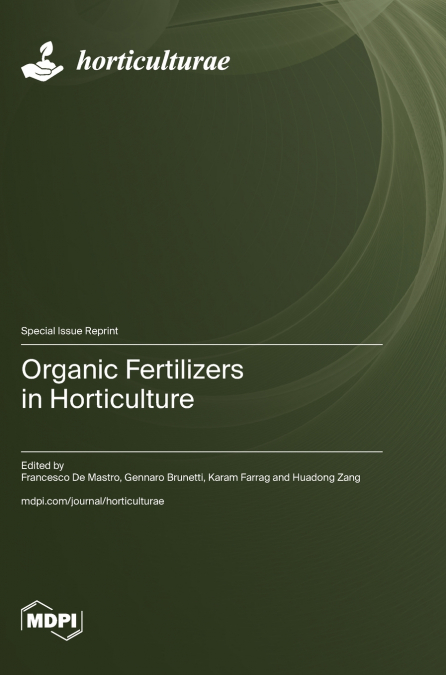
Modern horticulture depends heavily on the external supply of mineral nutrients in the form of synthetic fertilizers. The substantial use of synthetic fertilizers has for several years been associated with a vision of agricultural modernization aimed at drastically increasing food production. The attempt to 'industrialize' agricultural systems, particularly horticultural production, has entailed very high costs for the environment and human health, as well as the degradation of planetary conditions. In this non-reassuring scenario, organic fertilizers can act as transition elements toward sustainable low-input agriculture. Their slow decomposition ensures a steady supply of nutrients over an extended period, making them a sustainable alternative to synthetic inputs. On the one hand, they improve soil properties, ensuring better horticultural production. On the other hand, they require microbial degradation processes to mineralize the nutritional content and are therefore characterized as slow-release fertilizers; however, organic fertilizers can also be a potential source of environmental pollution. There is growing evidence that organic fertilizers can have high concentrations of trace metals, contaminants of emerging concern, or microplastics. Furthermore, the use of organic fertilizers could be integrated with new precision farming practices to ensure a stable and economically sufficient yield. It focuses on reporting on the current state of the art and aims to share any knowledge on the use of organic fertilizers in horticulture to improve food production and environmental sustainability.